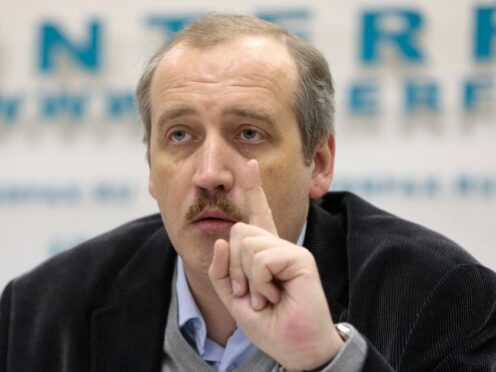
The editor-in-chief of the renowned Russian independent newspaper Novaya Gazeta has been detained in Moscow after being accused of discrediting Russia’s armed forces, the newspaper said.
Sergei Sokolov was detained by officers from the Centre for Combating Extremism (Center E) and fined 30,000 rubles (£260) in a hearing at a Moscow court later on Thursday, Novaya Gazeta said.
It said the charges — which were “administrative” and are usually punishable by a fine or a short prison sentence – were related to material posted on the outlet’s Telegram channel. It was found in an examination by the authorities to contain “linguistic and psychological signs of verbally discrediting the actions of power structures”, the paper said.
Media watchdog Reporters Without Borders (RSF) said it “protests against this arrest which further testifies to the violence of censorship in Russia”.
Mr Sokolov took the leadership of Novaya Gazeta’s newsroom in September after the previous long-time editor-in-chief, Nobel Peace Prize laureate Dmitry Muratov, was named a “foreign agent” by Russian authorities.
In September 2022, a Moscow court revoked the licence of Novaya Gazeta, which has been critical of the Kremlin for years, as part of the authorities’ crackdown on dissent.
Days after President Vladimir Putin sent troops into Ukraine just over two years ago, the Kremlin-controlled parliament approved legislation that outlawed disparagement of the Russian military or the spread of “false information” about the country’s actions in Ukraine.
Dozens of Russian independent media outlets were banned as a result, while others said they were halting any reporting related to Ukraine.
Novaya Gazeta announced in March 2022 that it was suspending its operations for the duration of the fighting in Ukraine, but staff who moved abroad launched a new project, Novaya Gazeta Europe, which has been strongly critical of the invasion.

Enjoy the convenience of having The Sunday Post delivered as a digital ePaper straight to your smartphone, tablet or computer.
Subscribe for only £5.49 a month and enjoy all the benefits of the printed paper as a digital replica.
Subscribe